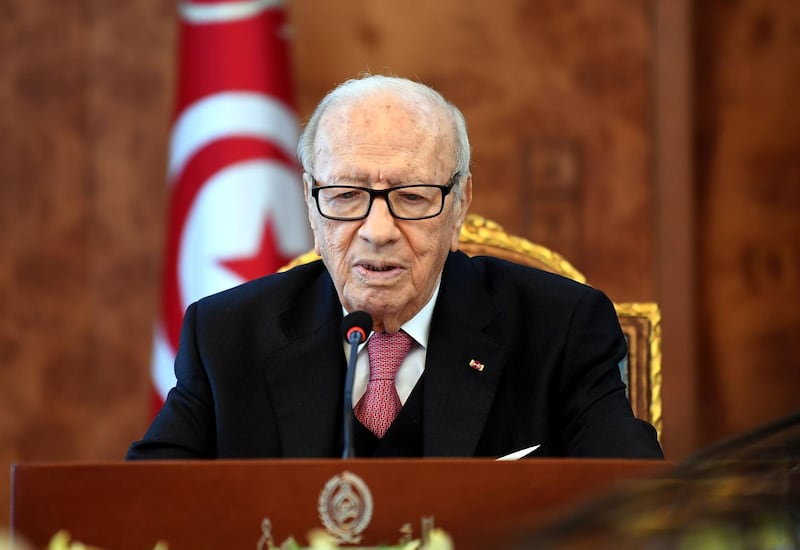Tunisia's state of emergency came into effect on Monday amid political tensions ahead of next year's legislative and presidential elections.
The country's presidency on Friday had announced the extension, imposed in 2015, following a series of deadly attacks by extremists.
President Beji Caid Essebsi took the decision after consulting with the ministers of defence and interior, Tunisian news agency TAP said.
According to a statement "the ministers discussed security and military situation in the country and at the borders, especially in response to terror threats and organised crime".
Mr Essebsi also consulted Prime Minister Youssef Chahed, despite strained relations between the two.
The state of emergency grants exceptional powers to security forces, allowing them to ban strikes and meetings "likely to provoke...disorder" the statement said. It also includes measures to "assume control of the press".
______________
Read more:
Tunisia reforms face fresh strain after president ends Islamist tie-up
Unemployed Tunisians turn to illegal Mediterranean crossings to Europe
Tunisia's plans for inheritance equality divide nation
______________
In March, the president decided to extend the nationwide state of emergency for a further seven months. Since then, the issue has been reviewed regularly and extended a number of times.
The state of emergency was put in place in November 2015, following two terrorist attacks.
One suicide bombing claimed by ISIS targeted a police bus in central Tunis, killing 12 security guards, while a mass shooting at the tourist resort in Port El Kantaoui, left 38 foreigners and one Tunisian dead and 39 wounded.
The most recent large-scale assault came in March 2016, when dozens of extremists attacked security installations in the town of Ben Guerdane on the Libyan border. Thirteen security forces and seven civilians were killed.
On Wednesday, two soldiers were killed in a land mine blast during an anti-terrorist operation on Mount Chaambi, near the Algerian frontier. A Tunisian-based division of Al Qaeda in the Islamic Maghreb, Okba Ibn Nafaa, is present in the area.
Extremists groups emerged in the country after the 2001 revolution. Soldiers and police officers are prime targets, particularly in the mountainous areas bordering Algeria.
Despite the troubles, tourism has revived since 2015, with over six million foreign travelers visiting Tunisia in the first nine months of 2018, according to government data.
Arrivals rose 16.9 per cent to 6.3 million between January and September this year, surpassing the overall number for 2014.






